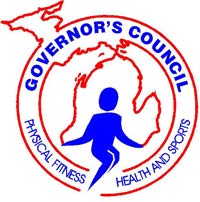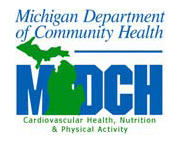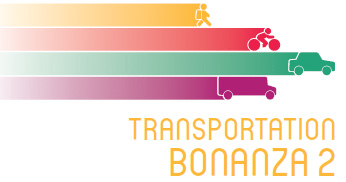You are currently browsing the monthly archive for November 2010.
 The Dexter Village Council unanimously adopted a Complete Streets Ordinance Monday designed to promote safer travel for pedestrians, motorists and bicyclists. This makes the 4th Complete Streets ordinance in Michigan along with over a dozen resolutions.
The Dexter Village Council unanimously adopted a Complete Streets Ordinance Monday designed to promote safer travel for pedestrians, motorists and bicyclists. This makes the 4th Complete Streets ordinance in Michigan along with over a dozen resolutions.
As reported by Ann Arbor.com, the ordinance was developed by the American Association of Retired People and members of the Walking and Bicycling Task Force, which include the Michigan Department of Community Health, the Governor’s Council on Physical Fitness, the Michigan Department of Transportation and Consumer’s Energy.
“The goal of developing a complete streets ordinance and policy will be to continue planning, designing and engineering the village’s transportation network to serve all ages and abilities through the inclusion of all elements of transportation,” said Allison Bishop, community development manager.
Congratulations to the Village of Dexter!
 LINDEN, MI – Communities across the country are recognizing the importance and safety of complete streets in their neighborhoods. The Linden City Council adopted a Complete Streets Resolution and has joined a national movement to make streets safer for all its users.
LINDEN, MI – Communities across the country are recognizing the importance and safety of complete streets in their neighborhoods. The Linden City Council adopted a Complete Streets Resolution and has joined a national movement to make streets safer for all its users.
Complete Streets promotes design principles that result in safe, accessible, and convenient access along and across roadways for all types of transportation users – including pedestrians, bicyclists, and transit riders.
The resolution is nonbinding and encourages local transportation planners to consider pedestrians and bicyclists when planning and implementing transportation projects. The resolution also highlights that an investment in Complete Streets can offer long term cost savings and result in many community benefits. Complete Streets can help make a community more sustainable, livable and economically viable by sparking economic development, improving public health and reducing air and water pollution.
The Complete Streets resolution “signifies that local decision-makers are thinking innovatively about how to transform the community into a more vibrant and welcoming place,” says Lauren Holaly, Active Living Coordinator for the Crim Fitness Foundation.
Safe and Active Genesee for Everyone (SAGE) a diverse group of advocates, non-profits, private, and government agencies that support and advocate for accessibility and active living policies and programs throughout Genesee County. SAGE has been advocating for Complete Streets to support their vision of creating a healthy Genesee County that provides safe and inviting public spaces where people of all ages and abilities can easily integrate fun, physical activity into their everyday life. SAGE and its membership worked with the city of Linden to draft the resolution language and garner grassroots support for the adoption of the resolution. To learn more about SAGE, please visit www.activegenesee.org.
SAGE is funded by the Ruth Mott Foundation and coordinated by the Crim Fitness Foundation, in partnership with the Michigan Fitness Foundation.
More Info:
Contact - Lauren Holaly
Active Living Coordinator
Crim Fitness Foundation
Office - 810-235-7801
The Charter Township of West Bloomfield adopted an updated master plan on September 28th which includes Complete Streets language. Despite referencing Complete Streets, however, the master plan disappointingly ignores national design guidelines (AASHTO) by promoting side paths (called safety paths in Oakland County) as bicycle facilities. (Note that the latest draft of the forthcoming AASHTO bicycle design guidelines devotes a couple pages to explaining why side paths are not safe for bicyclists.)
We are pleased to report that last week, Hamtramck City Council unanimously passed a Complete Streets resolution.
As m-bike reported however, we probably should not expect the city to complete any streets in the near term. City Council is also halting all non-emergency work by their public works department as they explore the possibility of declaring bankruptcy.
Their financial issues are really a shame because they have been doing some interesting master planning. Their preliminary recommendation presentation (from July 28, 2010) included these transportation goals:
Make Hamtramck’s streets and sidewalks safer and more accessible for drivers, pedestrians, and bicyclists. Improve right of ways to promote the city’s image, create a more pleasant public realm, and strengthen connections between neighborhoods. Create better transit connections within Hamtramck and to/from locations outside the city
Download Resolution
Resolution Text:
The Ann Arbor City Council unanimously approved a new pedestrian safety ordinance last July that gives walkers and bicyclists the upper hand when trying to brave traffic to cross city streets.
It’s a new kind of share-the-road philosophy, and city officials acknowledge it will take time and education to change the current culture. In the words of Police Chief Barnett Jones, it’s an effort to stop pedestrians from “playing Frogger trying to cross our roadways.”
The ordinance change, brought forward by Council Member Carsten Hohnke and Mayor John Hieftje, clarifies the obligation of motorists to yield to pedestrians in crosswalks.
According to the new ordinance, when traffic control signals aren’t in place or aren’t in operation, the driver of a vehicle must stop and yield the right-of-way to every pedestrian not only within a crosswalk, but also pedestrians approaching a crosswalk.
 State Representatives Jon Switalski and Pam Byrnes were honored at the Governor’s Fitness Awards as champions of physical activity on Tuesday, November 9, 2010 at the Lansing Radisson. Both Representatives received the Governor’s Council Achievement Award for Public Officials. This award is presented to public officials who demonstrate commitment to policies that support physical education, physical activity and active communities.
State Representatives Jon Switalski and Pam Byrnes were honored at the Governor’s Fitness Awards as champions of physical activity on Tuesday, November 9, 2010 at the Lansing Radisson. Both Representatives received the Governor’s Council Achievement Award for Public Officials. This award is presented to public officials who demonstrate commitment to policies that support physical education, physical activity and active communities.
“Representatives Switalski and Byrnes are champions for the increased quality of life that accompanies designing for active living,” says Terence Thomas, chair of the Governor’s Council on Physical Fitness, Health and Sports. “By sponsoring Complete Streets legislation, they are showing a commitment to the health of Michigan residents.”
“Complete Streets is a very positive step forward for Michigan. This law will help people stay active, get out in our communities and enjoy healthier lifestyles, while also giving our local businesses a much-needed boost,” says Representative Switalski.
The Governor’s Fitness Awards are held each year to honor Michigan individuals, public officials and organizations that are dedicated to healthy living. Nine awards are presented in acknowledgement of the many different ways the award winners have inspired and influenced Michigan residents to accept the challenge of committing to regular physical activity. The event is organized each year by the Michigan Fitness Foundation, a 501 (c)3 non-profit public charity foundation.
 For the 2011 grant year, the following local health departments and communities have been awarded an ARRA-Complete Streets grant:
For the 2011 grant year, the following local health departments and communities have been awarded an ARRA-Complete Streets grant:
| Local Health Department | Community |
| District Health Department #10 | City of Big Rapids City of Ludington |
| Ingham County Health Department | Lansing Township |
| Marquette County Health Department | City of Marquette |
| Public Health, Delta & Menominee Counties | City of Escanaba |
| Washtenaw County Health Department | Pittsfield Township City of Ypsilanti |
| Western U.P County Health Department | City of Hancock City of Ironwood |
Eight communities were awarded an ARRA-Complete Streets grants in 2010.
An example of how policy change can be accomplished widely is in Washtenaw County. As a result of funding (in part) and assistance from the Washtenaw County Health Department, the City of Saline was able to pass a Complete Streets ordinance in September, 2010. Recently, Washtenaw area’s regional transportation planning organization, Washtenaw Area Transportation Study, decided to take on Complete Streets as a special planning and visioning project in 2011. WATS will be convening a stakeholder group and have a public engagement process to develop a Complete Streets vision for Washtenaw County, including model policy language, design recommendations, etc.
For more information on the Complete Streets program, please contact Holly Madill at [email protected] or (517) 335-8372 or Lisa Grost at [email protected] or (517) 335-9781.
Congratulations to all of the grantees! We look forward to adding more push pins to our Complete Streets policy map.
The Michigan Department of Transportation, in cooperation with the city of Ann Arbor, will soon install a new High-intensity Activated crossWalK (HAWK) signal at the corner of I-94 Business Loop (Huron Street) and Third/Chapin Street in downtown Ann Arbor. This will be the first HAWK-style traffic control device on a state trunkline in Michigan. There are several such signals already in existence throughout the state on local streets, including in Detroit and Oakland County.
A HAWK signal provides a protected pedestrian crossing as a way to increase safety. It is used only for pedestrian crossings. It does not control traffic on side streets.
When you wish to cross the street, you push a button activating the HAWK signal. A flashing yellow light warns drivers approaching the crosswalk of a pedestrian wishing to cross. The flashing yellow light is followed by a solid yellow light telling drivers to prepare to stop.
The signal then changes to a solid red for drivers to stop at the intersection. At this point, you can cross safely. The solid red signal will then convert to a flashing red signal after a predetermined amount of time, telling drivers to proceed through the intersection when it is clear and safe to do so.
The HAWK signal will then go dark. Drivers can continue through the intersection without stopping until the button is again activated.
 The Michigan Association of Planning, in partnership with the Michigan Department of Community Health, Michigan Department of Transportation, Michigan Safe Routes to School program, Michigan Municipal League, and the MI Chapter – Congress for New Urbanism, is launching its second annual Transportation Bonanza! Slated for December 8 (Lansing Center) and 9th (Lansing Radisson), this comprehensive, multidisciplinary workshop provides the programming necessary to integrate land use and transportation policies with health and mobility agendas, and responds to the recent passage of complete streets legislation, which made Michigan the 14th state to embrace this integrated approach to planning, design and construction of transportation networks which provide safe, attractive and comfortable access for ALL users, from bicyclists and pedestrians, to the elderly and disabled, busses and trains, and the automobile.
The Michigan Association of Planning, in partnership with the Michigan Department of Community Health, Michigan Department of Transportation, Michigan Safe Routes to School program, Michigan Municipal League, and the MI Chapter – Congress for New Urbanism, is launching its second annual Transportation Bonanza! Slated for December 8 (Lansing Center) and 9th (Lansing Radisson), this comprehensive, multidisciplinary workshop provides the programming necessary to integrate land use and transportation policies with health and mobility agendas, and responds to the recent passage of complete streets legislation, which made Michigan the 14th state to embrace this integrated approach to planning, design and construction of transportation networks which provide safe, attractive and comfortable access for ALL users, from bicyclists and pedestrians, to the elderly and disabled, busses and trains, and the automobile.
Communities that create a culture that embraces transportation options for all users not only expands access to services and encourages healthy lifestyles, but also lowers traffic congestion, attracts and retains residents and businesses, supports mixed use and compact development, promotes economic development, and improves equity in transportation. Learn how YOUR community can enhance its livability, add value to residents, and attract investment by integrating elements that create vitality.
Learn what you can do locally to implement policies and programs that can transform your community, from DAY 1’s national livability experts Michael Ronkin, Harrison Rue, and Scott Windley to Day 2’s ITE Manual authorities Phil Caruso, Brian Bochner and G. Wade Walker.
Whether you are seeking a multi dimensional, motivating, and practical experience, or a technical guide for innovative applications - or BOTH - you will find value, inspiration and skills at MAP’s TB2.
Follow this link for online registration and to view the program brochure, with details about keynote speakers, session descriptions, and mobile workshops.
This week the Washtenaw County Road Commission approved road diets (turning a four lane road into two traffic lanes, a center turn lane and bike lanes) for Golfside Road in Pittsfield Township and Ford Boulevard in Ypsilanti Township.
At the meeting opponents of the Ford Boulevard road diet argued that such a configuration would put them out of business, and that the number of crashes on Ford Boulevard were not all that many. Road Commission staff, however, pointed out that Ford Boulevard’s crash rate is much higher than it should be and that study after study has shown that road diets reduce crash rates.
Supporters of the road diets included League of Michigan Bicyclists, Washtenaw Bicycling and Walking Coalition, Bike Ypsi and Friends of the Border To Border Trail, all Michigan Complete Streets Coalition partners.
Construction on Ford Boulevard is expected to take place in 2011.
Road Diets are a cost-effective tool to calm traffic and reclaim street space for other roadway users such as bicyclists. With many Michigan roads built for to carry a larger amount of automobile capacity than they actually do, road diets are low hanging fruit opportunities for Complete Streets advocates to push for in their own communities.
Road diets, however, do not always go over well with the auto-centric public, as has been seen recently in Williamston and Jackson. It just goes to show why nonmotorized plans and Complete Streets policies are so important so these battles do not happen on a road by road basis.
We salute the Washtenaw County Road Commission for supporting the concept of road diets. They may find that adopting their own Complete Streets policy, as the Ingham County Road Commission recently did, may help demonstrate to the community a long-term commitment to building active transportation infrastructure.















